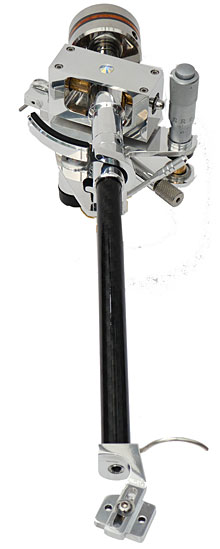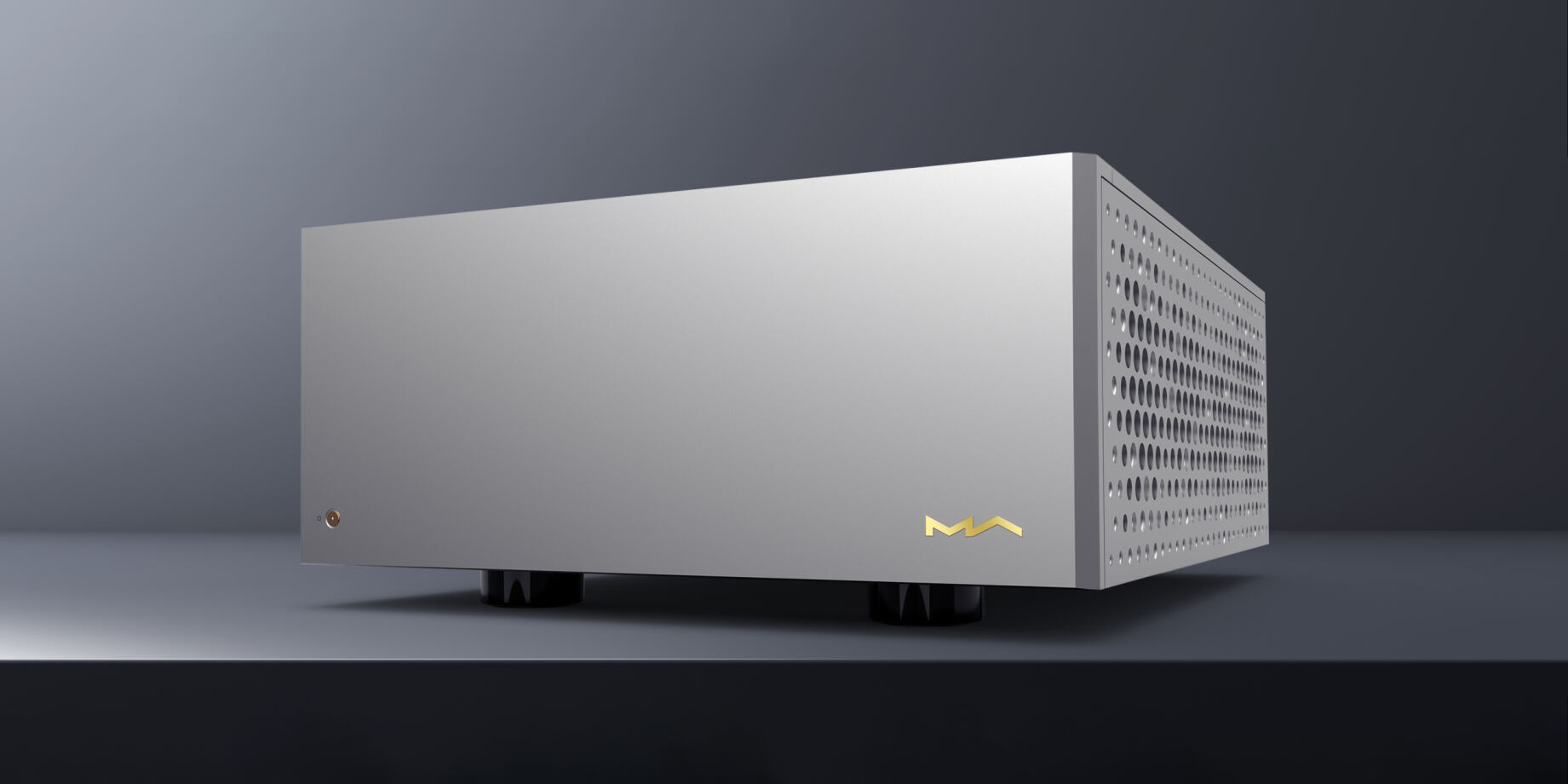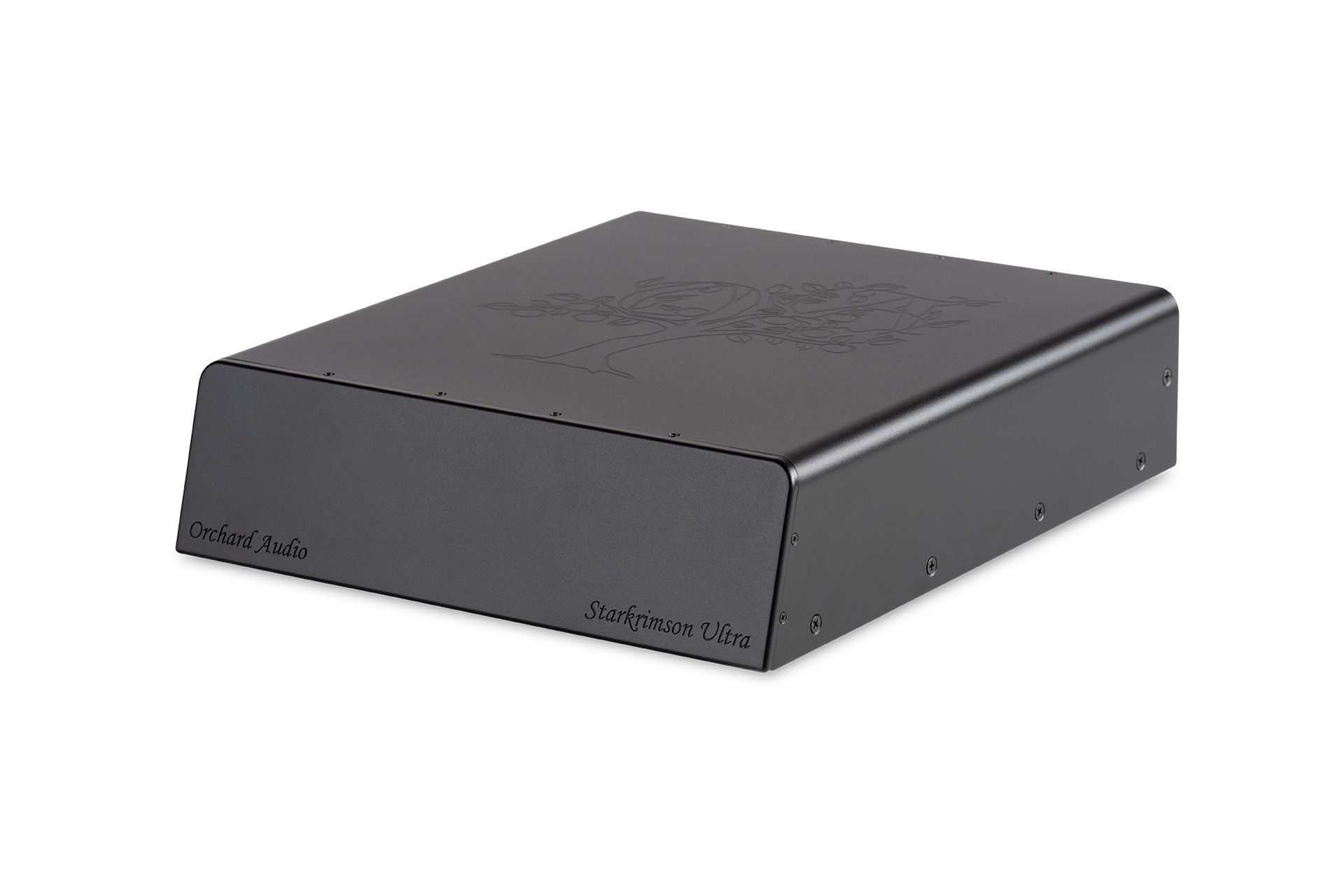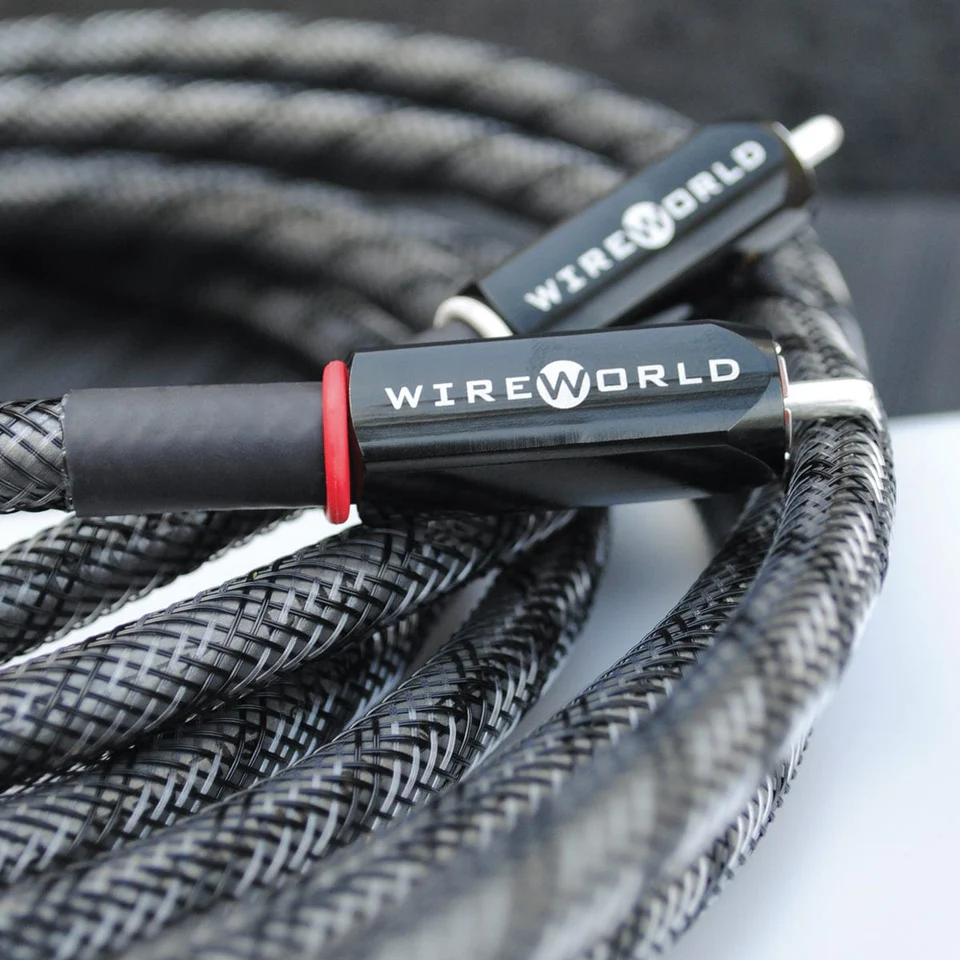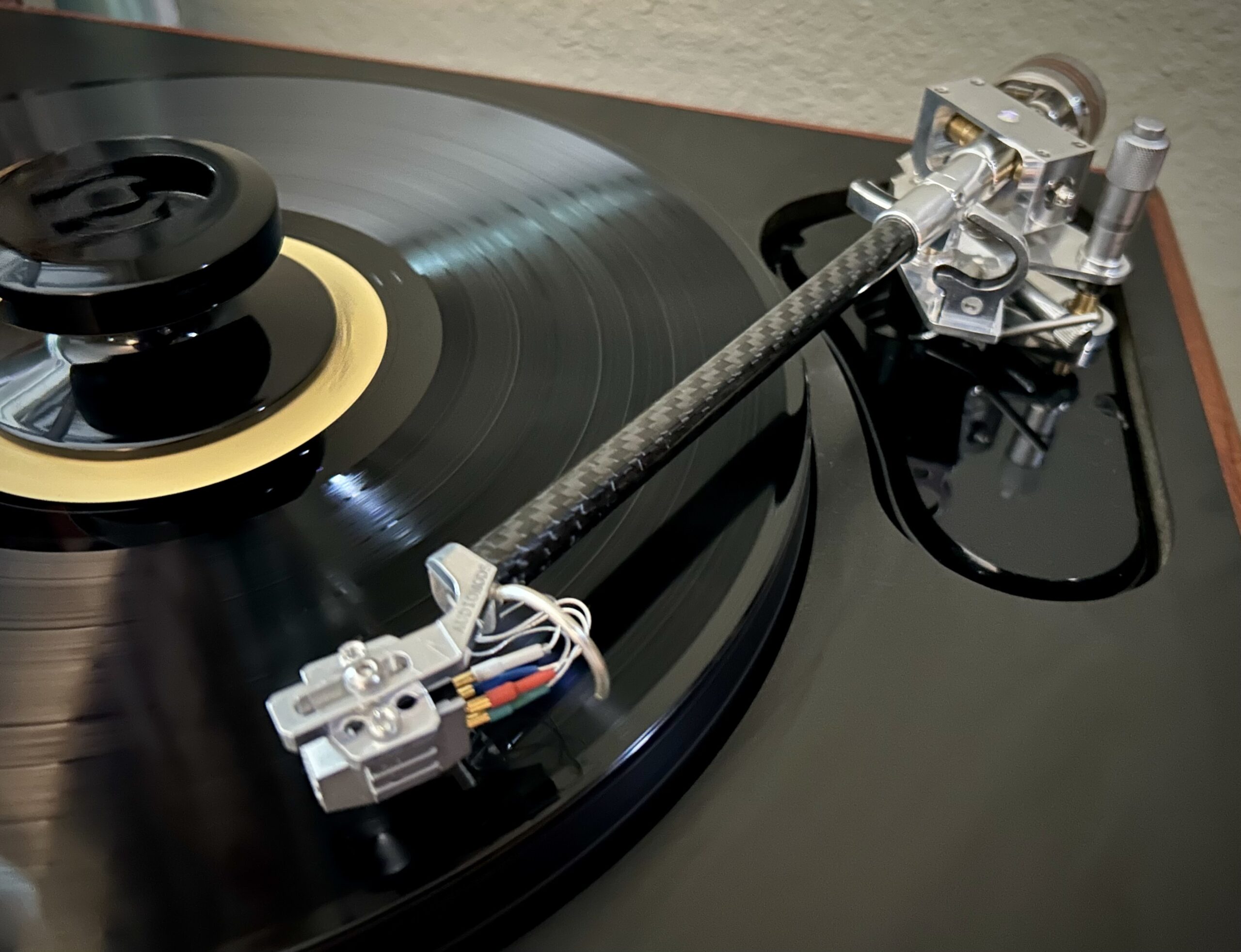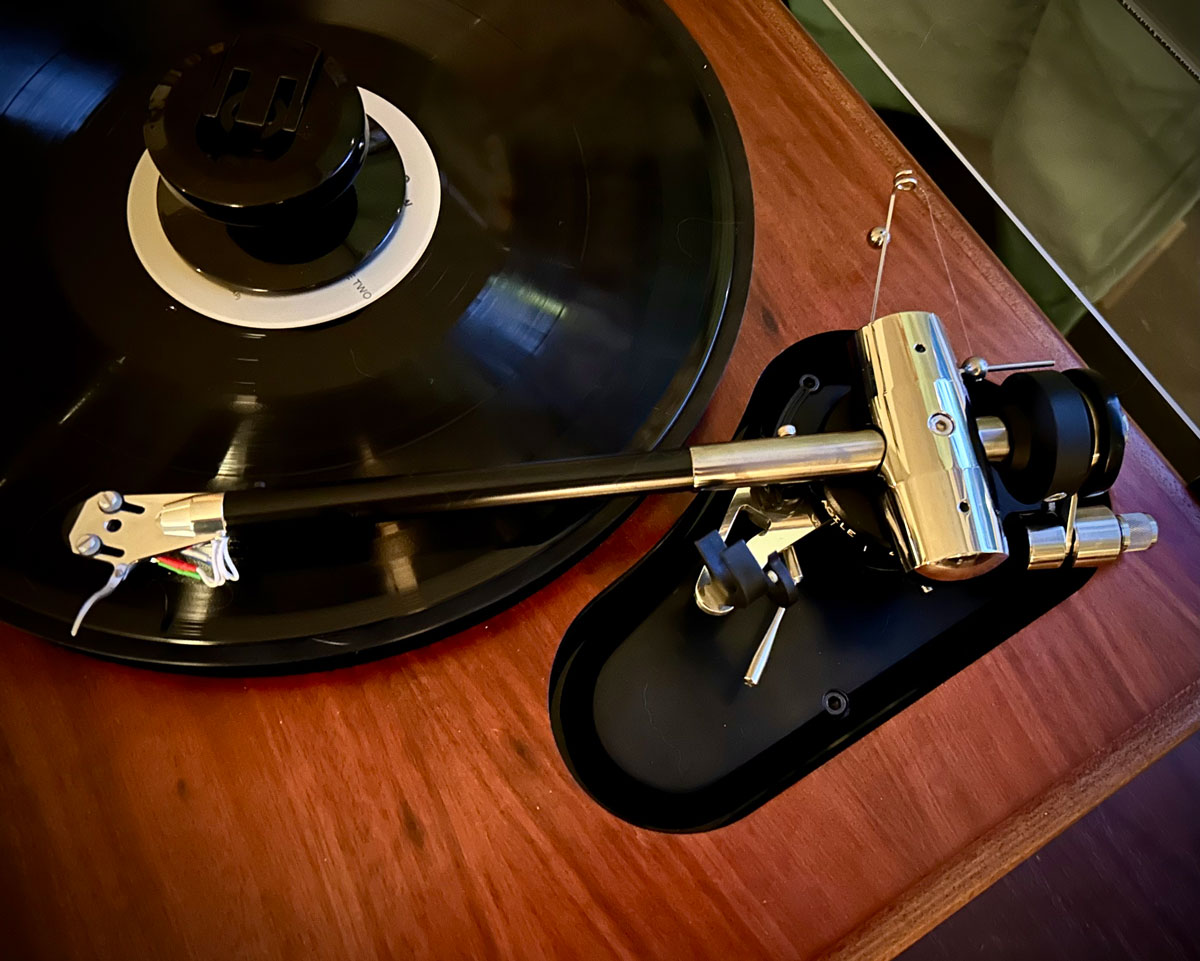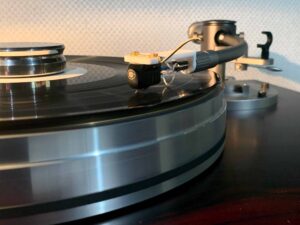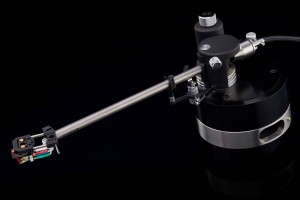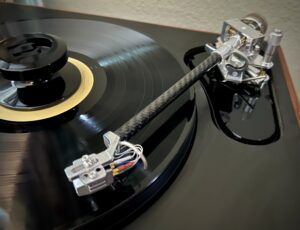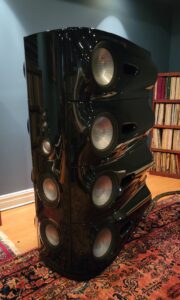In 2020 Jeff Spalls introduced the Audiomods Series Six tonearm, providing many analog hobbyists with an opportunity to experience excellent yet affordable analog playback. Shortly after the Series Six's introduction, two significant events altered the audio landscape for many of us. First, the Ichikawa Jewel Company LTD shuttered its doors, leading to the loss of Jelco tonearms. Secondly, SME Audio decided to remove their tonearms from standalone purchase options, now offering them only packaged with their own turntables. These two events created a significant void in the market for quality, value-based tonearms. Fortunately, Audiomods is here to meet this need. From browsing various internet audio forums, it appears that Audiomods owners are generally pleased with their purchases, and relatively few make it to the second-hand market. When they do, those owners often upgrade to a higher-tier arm that costs significantly more than the Series Six. Earlier this year, I reached out to Jeff to inquire about a custom build for one of my favorite vintage cartridges. After some discussion, it was decided that a Series Six arm could be modified to meet the mass requirements of an Ortofon MC2000 cartridge. Yet, in the closing sentence of his email, Jeff dropped a bombshell so casually that I was caught completely off guard. He wrote, "I've finally been persuaded to make a 12-inch arm. It turned out very well and looks much the same, although the arm tube is very different inside with more layers and steps. There are only two in existence at the moment, and I've not had time to launch it." This news is incredibly exciting! We worked out a timetable for a 12-inch Series Six arm to be supplied as a review sample for Positive Feedback readers, and I have now installed serial #003 on my Scheu Analog turntable. In Issue 108 of Positive Feedback (HERE), I reviewed the first generation of the Series Six tonearm, and since then, there have been incremental upgrades that have fine-tuned the design. These improvements provide the foundation for this new long arm, and the combination of new architecture and mechanical refinements has resulted in a remarkable device.
The 12-inch version starts at £1455 in a matte finish, which is a £230 increase from the standard 9-inch arm. For American readers, this translates to approximately $1900 USD, depending on the exchange rate at the time of purchase. A customer can request a polished finish for a £40 upcharge or change the counterweight to a gold-plated finish for the same amount. The increase in length is not just a simple matter of fitting a longer carbon fiber arm tube and machining a head shell with reduced offset geometry; the majority of the upgrades are related to the arm tube and are more complex than one might envision. The overall diameter has expanded from 11mm to 12mm, and the wall thickness has increased. The tube wall starts at 0.5mm thickness at the head shell end and doubles to 2mm on the yoke side. The arm tube on the shorter versions is only 1mm on the yoke side. There are a larger number of spacers to account for the longer arm tube, and the implementation of these devices has been adjusted to maintain a stiff and resonance-free arm wand. The aluminum yoke at the bearing end has been enlarged and slightly extended to provide a stable foundation for the arm tube. The head shell and vertical bearing geometry have been revised to accommodate the change in cartridge offset required by the longer profile. The current Series Six arms feature revised bearing architecture, necessitating a partnership with a new Japanese supplier of high-performance bearings. The counterweight stub now sports a brass core with a carbon fiber overlay to provide an additional layer of resonance control. The internal wire loom has been upgraded to Teflon-coated silver Litz wire that undergoes cryogenic treatment. The wiring can be a continuous loom from cartridge clips to either KLE bullet RCA ends, XLR ends, or a male DIN plug, allowing for a detachable tonearm cable. Much of the fundamental Series Six arm architecture is retained, including VTA and azimuth adjustment, an excellent anti-skate device, and a multi-layer counterweight with its micro-adjuster.
A compelling question that many readers may want to ask Jeff is, "What caused this change of heart regarding 12-inch arms?" The benefits and limitations of long arms have been debated for decades. SME released the 3012 tonearm in 1959, while iconic Japanese companies like Fidelity Research introduced their products in the mid-1970s. The benefits of a long arm include reduced tracking distortion, lower cartridge offset, and a decrease in anti-skate force. Historically, the drawbacks included increased mass, issues with arm tube resonance, and higher manufacturing costs, leading to a more expensive selling price. Despite these limitations, audiophiles sought out these vintage gems, and even today, long arms from SME, SAEC, and Fidelity Research command eye-watering prices, sought not just by collectors but also by avid vinyl aficionados. Circling back to the question of what changed Jeff's mind, he provided an interesting answer:
"I have always been reluctant to make a 12-inch arm because I think I concentrated too much on the performance of the arm tube as a beam, where the longer tube is inferior. The obvious advantage is better bias performance due to the reduced offset angle. The reduced tracking error isn't as significant as it's made out to be because a 9-inch arm is within the 12-inch error for 75% of the record. What I hadn't really credited is the way the longer tube can improve the performance of the pivots, due to the greater mechanical advantage (leverage), so the way the arm tube interacts with the arm yoke and bearings is improved significantly."
As previously mentioned, a 12-inch arm will have the lowest tracking distortion, although what is often overlooked is that a 10.5-inch arm can achieve close to those distortion numbers without significant issues related to arm tube resonance or a level of mass that precludes many modern cartridges. Until now, the smart buy in the Series Six arm has been the 10.5-inch version, and I have a low-mass version of that arm for precisely the above reasons. The advantage of modern materials and manufacturing techniques means that the carbon fiber arm tubes Audiomods uses are stiffer than aluminum or stainless steel, have 40% lower mass than aluminum, and superior internal damping characteristics. Because of these attributes, the historical disadvantages of a long arm have been neutralized, allowing the benefits of this geometry to be fully realized.
Installation of the Audiomods arm requires a single 23mm hole in the armboard. I have a mounting location for a second arm on my Scheu Analog Das Laufwerk No. 2 turntable. The overall length of the tonearm is 309mm, and the spindle-to-pivot distance is 295mm. I chose the Baerwald alignment profile, which also matches the profile Audiomods provides in the installation guide. The cartridges I used for this review include an Ortofon Verismo, Audio Tekne MC-6310, and first-generation Kiseki Blackheart. The Scheu turntable has a tall platter, necessitating a small 2mm aluminum spacer to achieve a suitable starting height. The micrometer VTA adjuster is an exquisite device; however, its range is somewhat limited, so it is essential to optimize the starting height of the arm to achieve the highest degree of functionality from the device.
Tonearms can be tricky to review because, in a perfect world, there should not be an audible contribution from the arm itself. Turntables should rotate at the correct speed, tonearms should allow the cartridge to trace the grooves without stray resonances compromising the signal, and only music should flow from the phono cartridge to the rest of the system. However, we do not live in a perfect world, and nirvana is only glimpsed at the highest levels of our hobby. The basis of this review will be a compare and contrast, as I have had all these cartridges on a Schroder CB-1L ebony tonearm. Both tonearms are captive bearing designs, yet what is interesting is that throughout the listening sessions, the differences between each arm are identifiable. However, the cartridges maintained their unique presentations, even while working in conjunction with a tonearm that adds its distinctiveness to the overall sound. As a listener, I can compare and contrast the two arms and, by viewing each one through the lens of each cartridge, gain a deeper understanding of how this new version of the Audiomods arm performs.
The Scheu Analog Das Laufwerk No. 2 turntable supports both the Audiomods and Schroder tonearms simultaneously, with identical 1-inch thick acrylic armboards. Each tonearm is connected to an Esoteric Audio E-03 phono stage, which has two inputs and can provide each cartridge with appropriate loading choices. The preamp is a Trinov Audio Amethyst, paired with Classe Audio Omega mono-block amplifiers. Speakers are Martin Logan CLX Art electrostatics, accompanied by restored Velodyne HGS12 servo subwoofers. A Balanced Power Technology 3.5 Signature power conditioner ensures clean AC power, used alongside PI Audio Group power cords. System wiring consists of Wireworld Gold Eclipse 8 series interconnects and Eclipse 8 speaker wire.
The Audiomods Series Six 12-inch arm is somewhat of a chameleon, allowing the nature of the phono cartridge to become easier to discern than with many other arms, thanks to low levels of coloration. The musical presentation of this tonearm is as close to neutral as one could hope to achieve. When paired with the Verismo cartridge, the midrange has a pleasant clarity that allows female vocals to shine without any artificial warmth or body added, and the higher registers do not have an unnatural splash or exaggerated brightness. Listening to "Unit 7" by the Wynton Kelly Trio (Verve; Smokin' At The Half Note VG-8633), I noticed that the trio of cartridges paired with this arm had variations in sound, yet each was a joy to listen to. The Kiseki Blackheart offered a burnished warmth and a romantic presentation. The Ortofon Verismo was the most analytical of the group, with a precise and buttoned-down sound. The Audio Tekne MC-6310 is my favorite pairing; the cartridge is complementary to this arm, allowing the music to flow through unhindered. On this track, the electric guitar has that lovely distinctive jazz tone of this era, and a smooth flow and unhurried pace through the composition. The cymbal work on the drum kit is clearly defined, and both the snare and bass drums possess breathtaking clarity and transparency. The piano tone reflects the 1960s recording techniques, and the overall sound is interpreted uniquely by each cartridge. The Verismo is vivid and clear, the Audio Tekne is introspective and languid, and the Kiseki has a warmth and fulness. This iteration of the Audiomods Series Six deftly reveals the inner nature of these three cartridges.
Jeff's efforts to pair a non-resonant arm wand with a rock-solid yoke pay off in vocal reproduction. This arm exhibits remarkable purity and natural presentation, allowing vocalists' textures and tones to shine through. The Analog Productions 45 RPM release of Rumours by Fleetwood Mac has been a reference album for me for years. On side IV, "Oh Daddy" and "Gold Dust Woman" (Reprise; Rumours 517787-1) serve as prototypical examples of the immense talent of Christine McVie and Stevie Nicks. Despite moving to a different genre and era of music, the overarching personality of the three cartridges remains consistent. The Kiseki Blackheart presents a romantic warmth and texture; the Verismo is more analytical; and the Audio Tekne is evenly balanced. Each cartridge highlights the beauty and texture of McVie's vocals while allowing Nicks' dark and haunting style to ebb and flow throughout the music. Once again, the Audiomods arm steps back from the compositions, becoming a proper conduit for each cartridge to fulfill its role. Interestingly, the closing drum passages sound remarkably similar to those on the Wynton Kelly Trio album, reflecting the neutrality this arm possesses.
A few years ago, Warner Brothers released the Dire Straits catalog on a limited edition 180-gram vinyl box set. "Skateaway" from Making Movies (Warner Brothers; Making Movies R13480/603497848591) gives the Audiomods tonearm an opportunity to showcase its ability to create a vivid spatial tapestry. In the opening seconds, a drum kit emerges from the nether regions of the soundstage and gradually gains presence until it occupies a central position. A guitar line forms, clearly located to the right and in front of the drum kit. Mark Knopfler's vocals emerge, centered and at the front of the band. Keyboards are introduced as the song picks up pace, and while the instrument's location is diffuse, it is undoubtedly situated deeper in the soundstage behind the drum kit. All three cartridges used during these listening sessions clearly presented an intricately layered musical landscape on this song. The Martin Logan CLX ART speakers are capable of astounding imaging, but only if the source components and recorded material meet the requisite standards. Poor recordings and compromised electronics result in a collapsed soundstage that resembles a swamp more than anything else. The Audiomods Series Six 12-inch arm serves as a rock-solid platform for a cartridge to showcase its abilities, and that is all an audiophile can ask from a tonearm.
The combination of stiffness and rigidity in the multi-layered carbon fiber arm wand, coupled with the increased mass of the receiver side of the yoke, lays the foundation for superb bass response. These design elements extend into the area of dynamic expression, where the Series Six excels in revealing contrasts between various instruments. Karen Sousa has an enchanting cover of "Tainted Love," (Hotel Souza; Music Brokers VYN095) and this jazz interpretation showcases the Series Six's attributes. This piece opens with an acoustic bass which digs deep yet is still nimble and refined. The Series Six tonearm captures the range and complexity of the delicate resonances in an authentic and realistic manner. Once again, each cartridge has a distinct presentation of this song. The Kiseki Blackheart highlights this instrument with an organic and textured tone, enriching the entire sound. In contrast, the Ortofon Verismo emphasizes the piano passages, where notes are struck with authority. The energy and attack expressed by this cartridge are enthralling. As a vocalist, Sousa is not known for belting out her songs, yet there are moments where she reaches inside to create sultry and powerful vocal passages. The Audio Tekne proves to be a synergistic pairing with the Series Six tonearm, with lovely vocals, authoritative bass response, and authenticity to the piano passages. This combination brings forth a myriad of diverse musical elements in a way that lesser arms fail to accomplish. This arm is multi-faceted, combining excellent bass response with dynamic swing and intricate tonal shading.
Jeff Spalls has built a tonearm that is not only a remarkable performer with a bit of hand crafted excellence. The pricing is quite reasonable for what is provided, and the majority of hobbyists can realistically attain this fine tonearm. In my estimation, the 12-inch version of the Series Six is the best buy in the Audiomods lineup, and I predict strong demand for it. The engineering and construction techniques used to construct the arm wand and yoke are certainly effective in minimizing unwanted resonance nodes that cause signal degradation. The upgraded bearing assemblies in this current generation of the arm are a pleasant surprise, as is the improved internal wiring. The micrometer, anti-skate device, and variable mass counterweight are tried-and-true elements carried through the Audiomods development process. The micrometer VTA adjuster is one of the most accurate devices available, as it allows for precise adjustments of the tracking angle of the cartridge. In terms of overall sound quality, the Series Six tonearm is tonally neutral, nicely detailed, and dynamically expressive in a way that no other arm in this price range can match. In the sub-$2,000 category, I cannot think of another arm I would want. I find that the 12-inch Series Six arm tracks closely to the ebony Schroder CB-1L I currently have, which is no small accomplishment, given that the Schroder costs an additional $4000. If you have the opportunity to listen to the 12-inch version of the Audiomods Series Six tonearm, do not let that chance pass you by; it is a gem of the audio world. I suspect you will be as smitten with this arm as I am.
12-inch Series Six arm
Retail: $1900 in a matte finish
Audiomods




